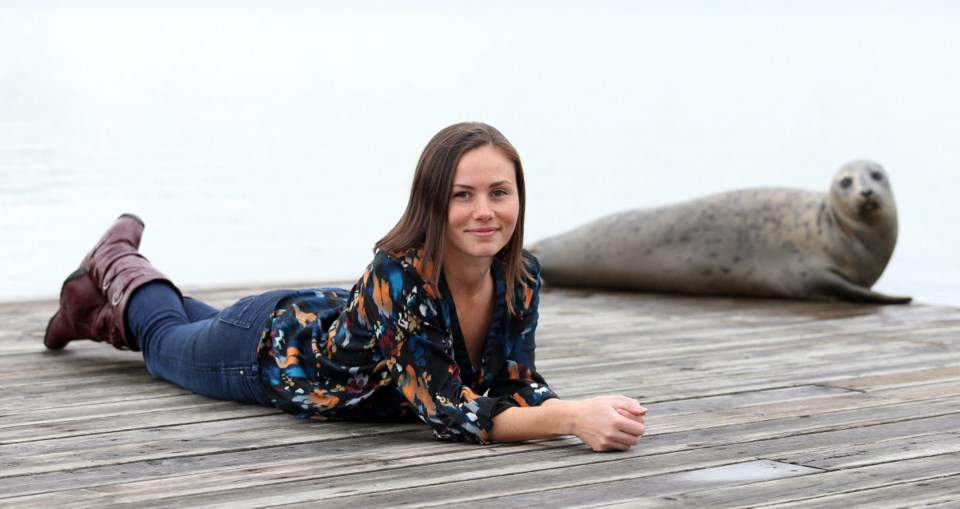Water floods across a dock in one photo. It creeps up the steps of a sidewalk in another and splashes against shoreside benches in a third.
The shots, taken at the time of year when tides are highest, are intended to show what average water levels might look like in the future, given projected sea-level rise.
Social media users around the world are sharing them as part of the King Tides Project. It’s one small way to change attitudes about climate change by giving people a concrete idea of what’s at risk, co-founder Heather Bauer said.
“That is an example of one of the tools we have for helping people come to an acceptance that our world is changing,” she said.
Bauer, a “climate change communicator” who formerly worked as an analyst with the Climate Action Secretariat, will give a talk on Monday about the behavioural change necessary to respond to climate change.
The talk is the first in a year-long series dedicated climate and energy, which culminates next September with an all-candidates debate on the topic ahead of the next federal election, currently scheduled for Oct. 19, 2015.
For Bauer, who lives in Victoria, one of the biggest barriers is accepting that we are all part of the challenge — and letting go of some of the habits we’ve grown into.
“To some degree, we have to change the way we live our lives and accept that the way we’re living now is not 100 per cent great,” Bauer said.
“That’s hard, because most of us have gone to school, been raised by good parents, for the most part, and have an understanding of how the world works. So being told that the way we’ve been raised and educated has led us in the wrong direction is really hard.”
Also difficult is not alienating others when you talk about climate change, she said. Aversions to being a bother have created an overwhelming silence around the topic, she said.
“It’s socially unacceptable to cause a stir among our peers. We’re social, group animals, and when we talk about things that make people feel uncomfortable, we’re putting ourselves at risk of being ousted from the group.”
During her talk, which will also include music and poetry, Bauer will host an discussion about ways to overcome that.
Drawing awareness to climate change doesn’t have to mean chastising friends for driving cars, she said.
Connecting and sharing with others is an important part of inspiring action. And in Victoria, there are plenty of opportunities to connect with ecologically minded people.
“In Victoria, there’s no shortage of organizations and individuals and programs available for us to take advantage of,” she said.
“What I’m hoping to do is illuminate to folks what it is we need to do to raise awareness of the opportunities people have to get engaged in their own future health with a changed climate.”
The talk will be held Monday at 7 p.m. at the First Metropolitan United Church, 932 Balmoral Rd. It is organized by the B.C. Sustainable Energy Association.
“The series is designed as preparation for the next federal election in 2015 to inform citizens on issues around climate change, policies needed and actions to take to prepare for the increasingly dramatic climate changes we face in our future,” said Marion Pape, chairwoman of the BCSEA Victoria chapter.
The next session, on Nov. 17, focuses on energy-efficient buildings and features Andrew Pape-Salmon, senior energy specialist with RDH Building Engineers.
For more information, go to facebook.com/BCSEA and kingtides.net.
King tides, climate change and rising sea levels
• Extreme high tides, or “king tides,” occur at a few specific times during the year when the moon is closest to the Earth. They are the highest tides that occur at each place, and are predictable and expected.
• King tides are not related to climate change, but they can offer an idea of what the average water levels might look like in the future, given projected sea-level rise.
• Rising sea levels are a symptom of a warming planet. As the average temperature on Earth rises, glaciers and polar ice caps melt, causing the sea level to rise.
• People will experience the impacts of sea-level rise to varying degrees.
While those living directly on the coast would feel the impacts most directly, coastal flooding could also affect tourism and food production.
Source: King Tides Project



